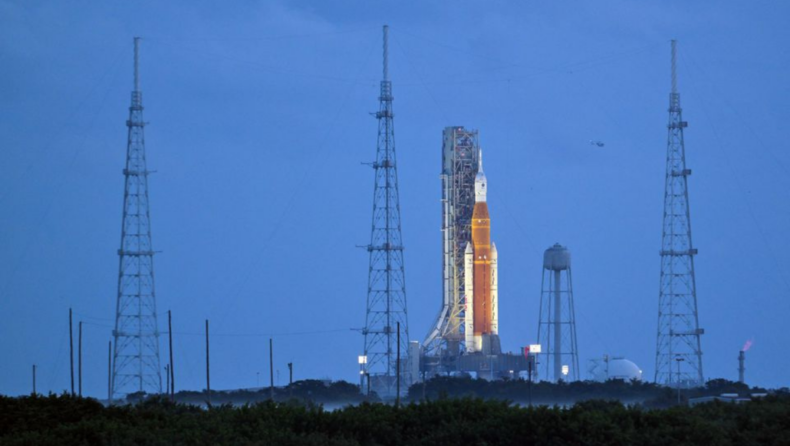For the second time in a week, NASA postponed a launch attempt of its massive, next-generation rocket ship on Saturday.
- Artemis launch delayed
- Push back for Moon to Mars
NASA on Saturday postponed an effort to launch its enormous, next-generation rocket ship for the second time in a week, blaming a persistent fuel leak that the space agency claimed might push back the launch of its moon-to-Mars Artemis programme by at least a few weeks.

About three hours before the scheduled 2:17 p.m. EDT (1817 GMT) liftoff time for the 32-story-tall Space Launch System (SLS) rocket and its Orion capsule from Cape Canaveral, Florida, preflight procedures were suspended for the day.
A half-century after the final lunar mission of Apollo, the predecessor of the Artemis programme, the unmanned test flight was to have been the first trip of both the SLS and Orion. It was intended to launch the capsule out to the moon and back.
After three unsuccessful efforts to repair a “significant” leak of supercooled liquid hydrogen propellant being poured into the rocket’s core-stage fuel tanks by Kennedy Space Center specialists, the countdown was aborted, according to agency officials.
Technical issues, such as a separate fuel line leak, a temperature sensor that wasn’t working properly, and cracks detected in the insulating foam, also prevented the first launch attempt on Monday.
After the prior difficulties were satisfactorily fixed on Saturday, mission management moved forward with a second launch attempt. In case a third attempt was required, NASA had also set aside a second backup launch schedule on either Monday or Tuesday.
However, after analysing data from the most recent issues, NASA came to the conclusion that the new hydrogen leak was too complicated and time-consuming to resolve on the launch pad before the mission’s current launch window expires on Tuesday.
According to an associate NASA administrator, Jim Free, at a late-afternoon briefing, the delay means the earliest opportunity to attempt again would occur during the next launch period, which spans from Sept. 19 to 30, or during the following October window.
He said that due to “range” regulations at Cape Canaveral, which set a time restriction on how long a rocket may remain at its launch tower before completing fresh interior safety inspections, the postponement would also require wheeling the spaceship back into its assembly facility.
The manager of NASA’s Artemis project, Mike Sarafin, estimated that it would take “several weeks of work” to get over the most recent technical difficulty.

In order to prevent a scheduling problem with the following International Space Station crew scheduled to launch early that month, NASA Administrator Bill Nelson stated earlier in the day that a reversal would push out the next launch attempt at least until mid-October.
In the space industry, launch-day delays and glitches are typical, particularly for new rockets like NASA’s Space Launch System, a complicated vehicle with a number of pre-liftoff processes that have not yet been fully tested and perfected by engineers.
An average of one in three launches are cancelled on any given day for any reason, including bad weather.
At the briefing, Nelson added, “We’re not going to launch until it’s right, and that is standard operating procedure, and will continue to be,.”
Also Read: NASA’s First Native American Woman in Space













